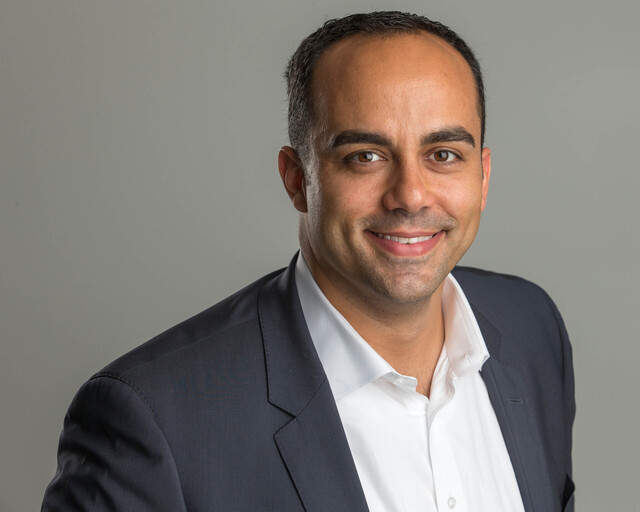Boyden’s Leadership Evolved series presents discussions with top leaders on the leadership trends and talent demands being driven by market evolution.
Jose R. Costa joins Boyden's Steve Nilsen for an in-depth conversation.

Jose R. Costa, Bojangles’ Restaurants
Marketing, customer experience and multi-unit retail expert Jose R. Costa sees incredible opportunity for cross-sector leaders in today’s complex franchising market. An established leader across brands such as Burger King, Driven Brands, and GrandVision, his most recent move to Chief Development Officer of Bojangles’ Restaurants exemplifies the growing strategic appeal of diverse experiences.
Boyden’s Steve Nilsen sat down with Mr. Costa to talk leadership, market evolution, the value of transferable skill sets and what to expect in an ever-evolving business, including how to navigate through the COVID-19 pandemic.
NILSEN: There has been an evolution in the skill set needed for a multi-unit leader. What has influenced this change?
COSTA: Today, managing multi-unit retail is a complex job, and a much more sophisticated one. The demand is higher than ever to find that person who can balance the skills needed to execute flawlessly and galvanize the team around a vision for the future. There are several factors that are contributing to this dynamic.
First we have technology and analytics. Advanced technology systems are constantly getting better, but the incredible amount of instantly available data means your focus is on running the business by the numbers, and adjusting through each daypart, occasion and weekday. Evaluating that data across multiple units requires an analytical skill set that wasn’t required a decade ago. Furthermore, acting quickly on this data requires a nimble leader with a very solid understanding of the business fundamentals, market dynamics and people development.
Second is staffing. It is incredibly tough to staff all dayparts with qualified people who truly want to delight consumers and do the job with commitment and care. When you are managing teams across multiple units, that’s an even bigger task. A multi-unit leader must be a coach, motivator, leader and manager all amalgamated together, particularly with a workforce that can be less than engaged due to generational upbringing.
The third factor I want to mention is customer expectations. Consumers are expecting and demanding instant gratification from every brand. Leaders also have the challenge of customers who immediately share their dissatisfaction or your location’s shortcomings on social media – requiring leaders to be nimble in their response to maintain customer trust and prevent a viral explosion that can be damaging to the brand.
NILSEN: You have experience running a multi-unit operation in food service. Based on your journey, what are some specific drivers of success and what are the most common barriers?
COSTA: A franchisee who is successful with a multi-unit business has many times overdeveloped the skills that allowed him or her to be able to invest in the business. They must be a hands-on operator who looks at all aspects of the business or have a very good manager who can effectively lead the operations. You can’t have someone who comes and goes, as that creates operational inconsistencies. They also build upon the group knowledge of the franchise business and the other owners, and leverage the tried-and-true business practices outlined by the franchise parent. But the skilful franchisees take this to the next level, adding their own brand of leadership, community involvement and business engagement that make them stand out. The opposite of that is the franchisee who doesn’t follow the operational guidelines or work with the franchisor effectively. They are frequently the ones who don’t have a long career in this industry.
NILSEN: Is the growing franchising of everything from daycare to plumbing and auto repair shops the driving force behind multi-unit management becoming an attractive skill set?
COSTA: It is a very attractive skill set, and one that more business schools will focus on as a specialty. It requires all the disciplines – finance, accounting, operations, sales, marketing, human resources and more. There are tremendous opportunities for recent graduates to join a franchise operation company that has multiple units and a portfolio of franchise brands, then grow with their business. It’s also a skill set that is mobile – you could go almost anywhere and find a need for a qualified manager for a multi-unit franchise operation.
NILSEN: In what business sectors do the strongest multi-unit leaders currently reside?
COSTA: The restaurant industry is probably considered first and foremost in the multi-unit model, with franchise operations from QSR to fast casual to fine dining. Beyond that, financial services and personal services like gyms, massage, salons and health-related businesses have grown tremendously, followed by educational and childcare franchises. Over the last 10 years, the automotive mechanical and collision repair sector has seen a lot of franchise growth and consolidation. One industry that is experiencing growth more recently are local handymen, plumbers, roofing, HVAC, flooring and electrician franchises as the housing market remains stable. Bottom line, if you have the right skill set for multi-unit management and an affinity for a particular industry, you can most likely find a franchise operation as a career choice.
NILSEN: Would you say multi-unit management skills are applicable and readily transferable from one industry to another?
COSTA: Multi-unit management skills are most definitely transferrable, from industry to industry and city to city. Competition for candidates with these skills will continue to increase as multi-unit franchise operations do. Having the right skill set plus hands-on experience in a multi-unit company will allow someone to move fairly easily. And someone who has broad business insight will be able to learn the nuances of a new industry pretty quickly.
NILSEN: If you were to advise a multi-unit leader to focus their attention on a specific industry, what would that be?
COSTA: It really depends on their interests. As a multi-unit leader, you want to select an industry you have a passion for, because franchise businesses are often seven-day-a-week operations and require significant time and attention to manage efficiently. You should also evaluate the operations and profitability model for the different industries to find the right fit. There’s a tremendous difference between working with mature brands that rely on volume and scale for success, growing national brands that are establishing their multi-unit model, and new franchises that are moving from local and regional operations into the multi-state and national landscape.
NILSEN: Since we planned this chat and the topics to discuss, the impact of the COVID-19 pandemic has taken over as the number one thing that keeps us up at night. Please describe the multi-unit leader’s opportunity to lead in this moment, and what your top recommendation is to all those in that position today.
COSTA: It would be hard to stick to one. Let me share a few recommendations for these leaders as they manage through this situation.
First, multi-unit leaders need to keep a constant flow of communication with all key stakeholders. From team members to employees and from suppliers to healthcare officials, brands need to establish a rigorous cadence of messaging that is transparent, optimistic, clear and simple to understand.
Second, establish daily routines to bring a sense of stability to team members who are working remotely. It’s very important to institute clear rules of engagement as the common goals haven’t changed, but the existing methods and workflows are disrupted.
Third, a multi-unit leader needs to have the strategic vision to invest in key areas of the business while navigating the crisis. For example, it has been shown repeatedly that leaders who invest more in marketing, guest experience and operational execution come out stronger on the other side of a crisis.
My last point is that multi-unit leaders need to have a strong grip on the financials so they know what of their severely limited resources they can invest to make a difference.
Leadership Evolved: About the Series
Boyden’s Leadership Evolved series presents discussions with top leaders on the leadership trends and talent demands being driven by market evolution, with the purpose of sharing insights and vision in a rapidly changing and increasingly complex global business environment.





